Paella, a renowned dish originating from the Valencia region of Spain, is a vibrant and flavorful rice dish that has gained international acclaim. Known for its rich combination of ingredients, including rice, saffron, vegetables, seafood, and meats, paella offers a diverse array of flavors and textures. Beyond its culinary appeal, paella provides a range of nutritional benefits that make it a wholesome and satisfying meal.
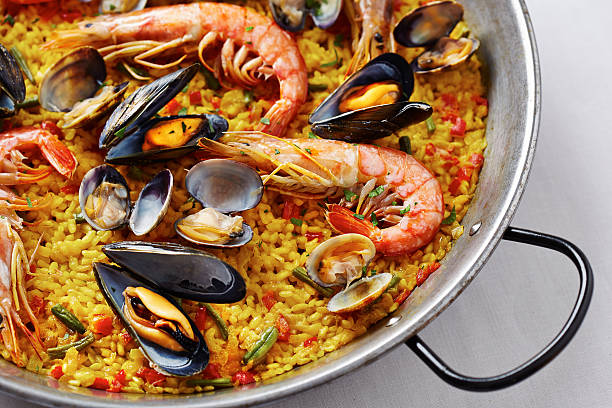
The primary component of paella is rice, which serves as a source of complex carbohydrates. Complex carbohydrates are essential for providing sustained energy, as they are digested slowly, helping to maintain stable blood sugar levels. This slow release of energy makes paella a great option for a hearty and satisfying meal that can keep you energized throughout the day.
Paella is traditionally made with a variety of protein sources, including seafood such as shrimp, mussels, and clams, as well as meats like chicken, rabbit, or chorizo. These ingredients contribute a substantial amount of high-quality protein, which is essential for muscle repair, growth, and overall bodily function. Seafood, in particular, provides lean protein along with essential omega-3 fatty acids, which are beneficial for heart health and brain function.
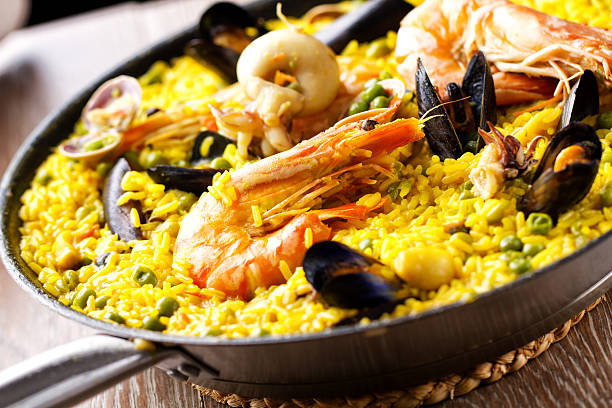
While paella contains some fats, particularly from the addition of olive oil and certain meats, these fats are generally of the healthy variety. Olive oil, a staple in Mediterranean cuisine, is rich in monounsaturated fats, which are known to support heart health by reducing bad cholesterol levels and increasing good cholesterol. Additionally, the omega-3 fatty acids found in seafood contribute to anti-inflammatory effects and support cardiovascular health.
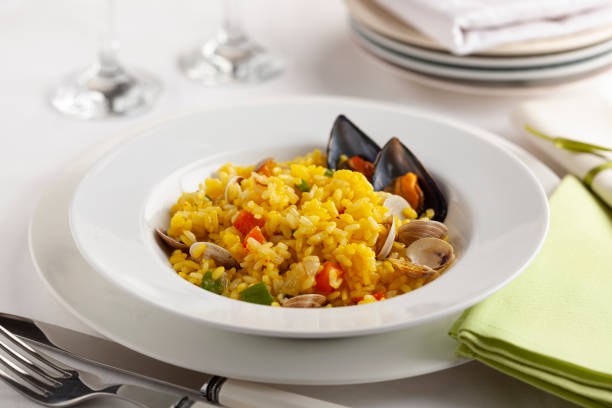
Paella is packed with a variety of vegetables, such as bell peppers, tomatoes, peas, and onions, which contribute essential vitamins and minerals. These vegetables provide vitamins A, C, and K, as well as folate, which are important for immune function, skin health, and cellular metabolism. The seafood in paella also provides valuable minerals such as zinc, iodine, and selenium, which are crucial for thyroid function, immune health, and antioxidant protection.
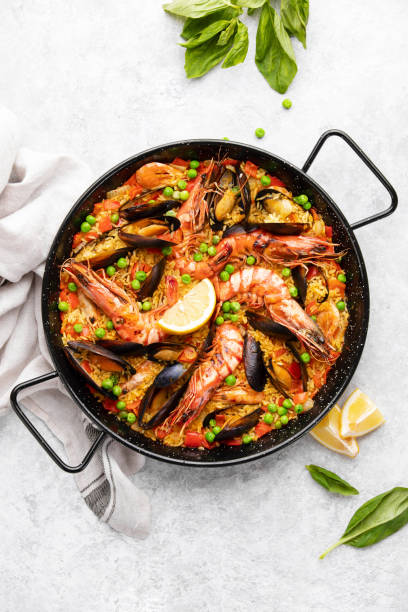
One of the key ingredients in paella is saffron, a spice that not only imparts a distinctive flavor and vibrant yellow color but also offers numerous health benefits. Saffron is rich in antioxidants, which help combat oxidative stress and reduce inflammation in the body. These antioxidant properties contribute to overall health and may reduce the risk of chronic diseases such as heart disease and cancer.
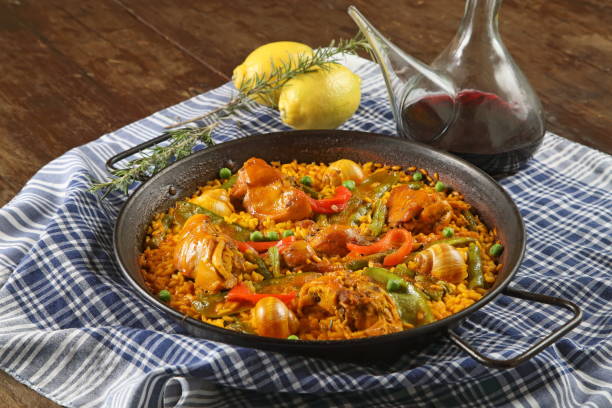
The inclusion of vegetables in paella enhances its fiber content, which is essential for digestive health. Dietary fiber aids in maintaining regular bowel movements, preventing constipation, and promoting a healthy gut microbiome. Fiber also helps regulate blood sugar levels and can contribute to weight management by promoting feelings of fullness.
Paella’s versatility allows it to be adapted to various dietary preferences and nutritional needs. Whether made with an emphasis on seafood, a combination of meats, or a vegetarian version, paella can be customized to include a wide range of nutritious ingredients. This flexibility ensures that paella can cater to diverse tastes while providing a balanced meal that includes carbohydrates, proteins, fats, vitamins, and minerals.
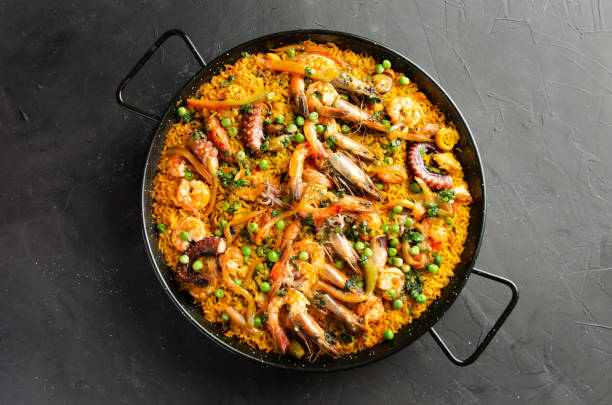
Beyond its nutritional value, paella holds deep cultural and social significance in Spanish cuisine. It is often enjoyed as a communal dish, bringing families and friends together to share in the experience of cooking and eating. The preparation of paella is considered an art, with each region and family having its own unique recipe and method. This communal aspect enhances the enjoyment of the meal and promotes a sense of connection and tradition.In conclusion, paella is not only a flavorful and iconic dish but also a nutritional powerhouse. With its combination of complex carbohydrates, high-quality proteins, healthy fats, and an array of vitamins and minerals, paella offers a balanced and satisfying meal. Its antioxidant properties, fiber content, and versatility make it a wholesome choice for individuals seeking a nutritious and delicious meal. By savoring paella, one can enjoy a taste of Spanish culinary heritage while reaping the benefits of its rich nutritional profile.

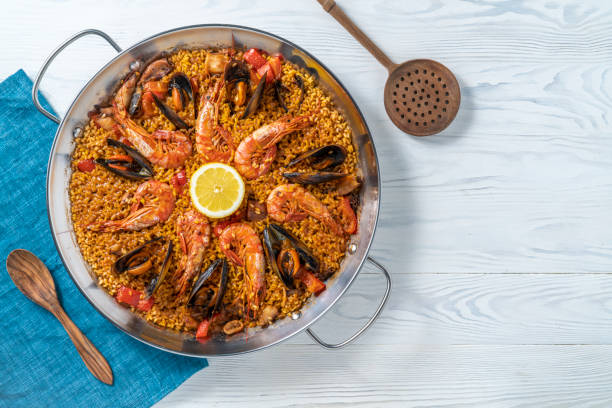
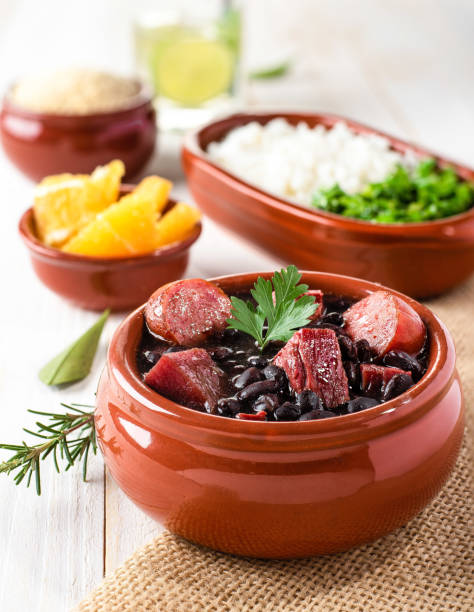

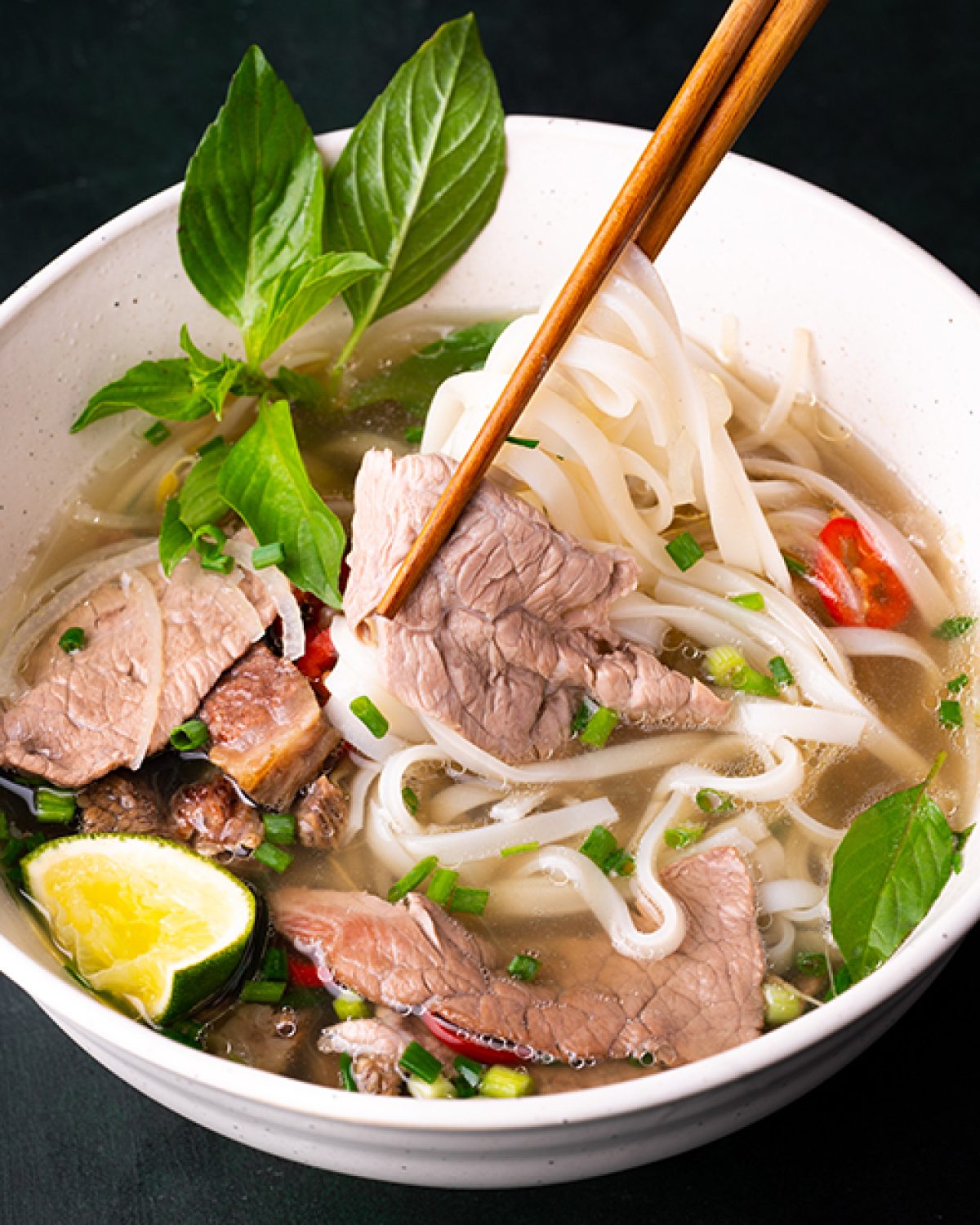
Great breakdown! For content refinement, consider using an AI Grammar Checker. Platforms like tyy.AI Tools offer smart ways to streamline tool discovery and enhance workflow efficiency.
Really enjoying this article! It’s cool seeing platforms like bigbunny vip cater specifically to the Philippine market with easy GCash deposits. Makes gaming so accessible & fun! 👍